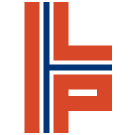CONFERENCE TRACK
Submissions must describe relevant and novel results on the following typical, but not exclusive, topics:
- Learning in logics: logical-foundations of learning; computational/statistical learning theory; specialisation and generalisation; probabilistic logic-based learning; graph and tree mining; algorithms and approaches for learning with (semi-)structured data; (semi-)supervised and unsupervised relational learning; relational reinforcement learning; predicate invention; propositionalization approaches; multi-instance learning; learning in the presence of uncertainty; meta-level learning.
- Knowledge Representation: logic programming; Datalog; first-order logic; description logic and ontologies; higher-order logic; Answer Set Programming; probabilistic logic languages; constraint logic programming; knowledge graphs.
- Applications of learning: art; bioinformatics; systems biology; games; medical informatics; robotics; natural language processing; web-mining; software engineering; modelling and adaptation of control systems; socio-technical systems.
ILP 2018 is also encouraging submissions on (combination with) other areas such as cognitive technologies, neural networks and deep relational learning, knowledge acquisition from big data and the cloud, as well as contributions on the application of any of these solutions to real world problems.
We solicit four types of submissions:
- Long papers describing original mature work containing appropriate experimental evaluation and/or representing a self-contained theoretical contribution. Accepted long paper submissions will be split in regular papers, accepted for appearing in Springer LNAI conference proceedings, and up-and-coming papers, accepted for appearing in CEUR proceedings, depending on the maturity of the submitted work. Regular papers will be assigned a long time slot for presentation, up-and-coming papers will be assigned a shorter time slot for presentation.
- Short papers describing original work in progress presenting preliminary results, brief accounts of original ideas, and other relevant work of potentially high scientific interest but not yet qualifying for the long paper category. Accepted short papers will be assigned a reduced time slot for presentation and will be published on CEUR proceedings.
- Works in progress describing ideas and proposals that the author(s) would like to present at the conference. Submissions will be accepted/rejected on the grounds of relevance. Accepted works will be assigned a reduced time slot and will be published on the conference website but will not appear in the conference proceedings.
- Papers relevant to the conference topics and recently published or accepted for publication by a first-class conference such as ECML/ PKDD, ICML, KDD, ICDM, AAAI, IJCAI, etc. or journal such as MLJ, DMKD, JMLR etc. These will be accepted/rejected on the grounds of relevance and quality of the original publication venue. Authors of accepted papers will be assigned a reduced time slot for presentation and will not appear in the conference proceedings, however a link to the original work will be inserted in CEUR.
Submissions of long papers and short papers (categories 1 and 2) must not have been published or be under review for a journal or for another conference with published proceedings.
Paper Submission
Submissions must be in Springer LNAI format, according to the Springer LNCS author instructions.
Already published papers should be submitted in their original format and the authors should indicate the original publication venue.
Submissions will be managed via Springer OCS here.
When submitting, please choose among the 4 paper categories:
- LONG
- SHORT
- WORK IN PROGRESS
- ALREADY PUBLISHED.
Reviewers will be asked whether papers submitted in category 1 should be published, if accepted, in Springer LNAI or CEUR Proceedings.
Publication
Regular papers will be included in the conference proceedings, to be published by Springer Verlag in the “Lecture Notes in Artificial Intelligence” (LNAI) Series. Regular papers must not exceed 15 pages including references.
Up-and-coming and short papers will be included in the Late Breaking Papers proceedings, to be published by Sun SITE Central Europe CEUR Workshop proceedings. Up-and-coming papers must not exceed 15 pages including references, while short papers must not exceed 7 pages including references.
Works in progress will be published on the conference website but will not be included in the conference proceedings. Given their nature of preliminary proposals, they must be of 1 to 6 pages including references.
A link to already published papers will be included in the Late Breaking Papers CEUR proceedings.
At least one of the authors of accepted papers/works in progress must register for the conference, and present his work.
Awards
The conference has established several awards for the best papers. More information can be found here. Before submitting your paper, read carefully the instructions.
Important Dates
- Abstract submission (categories 1 and 2):
28th May 2018EXTENDED! (Strict) - Papers submission (categories 1 and 2):
2nd June 2018EXTENDED! (Strict) - Papers notification (categories 1 and 2):
3rd July 2018 - Work in progress and already published papers submission:
18th July 2018 - Work in progress and already published papers notification:
23rd July 2018
The deadline on each of these dates is midnight, Central European Summer Time (UTC + 2).
This call complements the journal track call available here.
We will strive to notify authors of the journal track of acceptance/rejection before the deadline for abstract registration of the conference track, so that rejected papers can be submitted to the conference track. In this case, the authors should specify how they took into account the journal track reviews.
